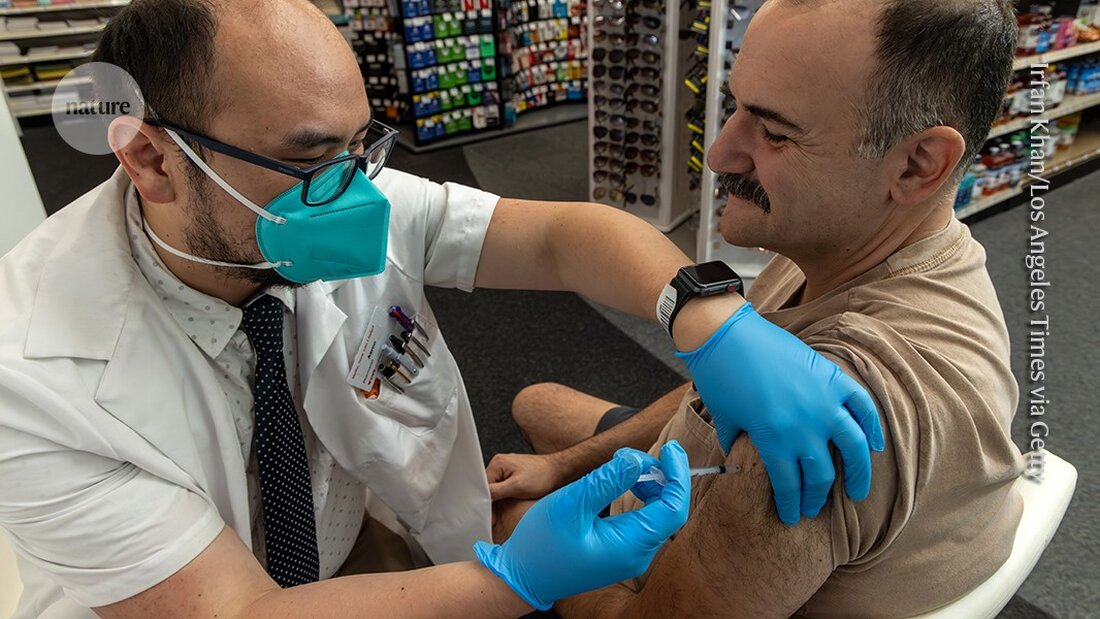NIH reduces mRNA vaccine funding: Will there be further cuts?
The NIH has cut an mRNA vaccine research grant. Fears are growing that further cuts could follow.

NIH reduces mRNA vaccine funding: Will there be further cuts?
The US National Institutes of Health (NIH) has expanded its cuts in science funding and a growing list of research projects that have now been completed Hundreds of grants includes funding studies on everything from HIV in children to reducing mold exposure and its impact on asthma. There is growing concern among scientists that Research on mRNA vaccines could be affected next.
Nature has learned that the agency already at least one grant who assisted a scientist at Columbia University in New York City who was studying the body's immune response to an mRNA vaccine against COVID-19.
Concerns about cutting grants for mRNA vaccines grew after receiving a March 6 email asking NIH staff to compile a list of grants to study the technology. Acting NIH Director Matthew Memoli “has requested information about NIH’s investments in mRNA vaccine research” — including current and planned grants, according to the email, which gave a one-day deadline. At the time of the deadline, a spreadsheet containing over 130 entries had been created, according to an NIH source who wished to remain anonymous.
Although grants for mRNA vaccine research have not yet been cut off on a large scale, as has happened with other topics — including LGBT+ health — the request is an ominous sign, says Justin Richner, a viral immunologist at the University of Illinois College of Medicine at Chicago.
NIH officials are so concerned that they have begun advising grant applicants not to mention mRNA vaccines in their research proposals, reports KFF Health News, a health and politics news site in Washington D.C. Sources who spoke to Nature indicated that this was not an official directive from NIH leadership, but rather a recommendation from individual program leaders.
“To take away an effective tool for fighting infectious diseases — it’s hard to imagine that we would do that as a society,” said Richner, who is developing an mRNA vaccine against the dengue virus.
The NIH, the largest sponsor of biomedical research in the world, did not respond to Nature's inquiries about whether research on mRNA vaccines is being halted or to scientists' concerns about political interference in scientific research.
The panic over mRNA vaccine grants comes on the heels of the termination of more than 40 grants to investigate vaccine opponents. Similar to the request for a list of mRNA vaccination projects, the authority requested a table with all active anti-vaccination research projects. NIH staff were informed that certain grants were to be canceled by the end of the day in a March 10 email obtained by Nature. “It is the policy of the NIH not to prioritize research activities aimed at gaining scientific knowledge about why individuals are hesitant to be vaccinated and/or exploring ways to improve interest and commitment to vaccination,” the strike letters said.
Robert F. Kennedy Jr., a longtime anti-vaxxer, was chosen by President Donald Trump to be the nation's health secretary and now heads the NIH's overarching agency. In 2021, he unsuccessfully petitioned government agencies to withdraw approval of mRNA COVID-19 vaccines, falsely claiming that this type of shot was the "deadliest vaccine ever made," citing unconfirmed claims of side effects in a government-run database.
The mRNA vaccines rose to fame during the COVID-19 pandemic, not only because of their safety and effectiveness in preventing severe disease, but also because of the speed at which it develops and were deployed — primarily during the first Trump administration. The vaccines involves genetic instructions that tell a person's cells to make copies of viral proteins, also known as antigens. This process stimulates the body to produce protective antibodies and virus-fighting immune cells.
Modeling studies suggest that worldwide, mRNA vaccines saved more than 14 million lives in the first year of administration 1, during the COVID-19 pandemic. Researchers are now testing the technology against a variety of diseases, including mosquito-borne diseases and cancer, for which there are more than 100 ongoing studies. Still, some U.S. officials, including Florida's health secretary, called for a moratorium on the technology and made unfounded claims that the vaccines cause cancer and are not safe.
“I never thought the government would turn against a research field for non-scientific reasons,” says Drew Weissman, an immunologist at the University of Pennsylvania in Philadelphia who shared the 2023 Nobel Prize in Physiology or Medicine, because he laid the groundwork for creating mRNA vaccines. “I feel particularly confused because the potential for RNA is so enormous.”

 Suche
Suche
 Mein Konto
Mein Konto
